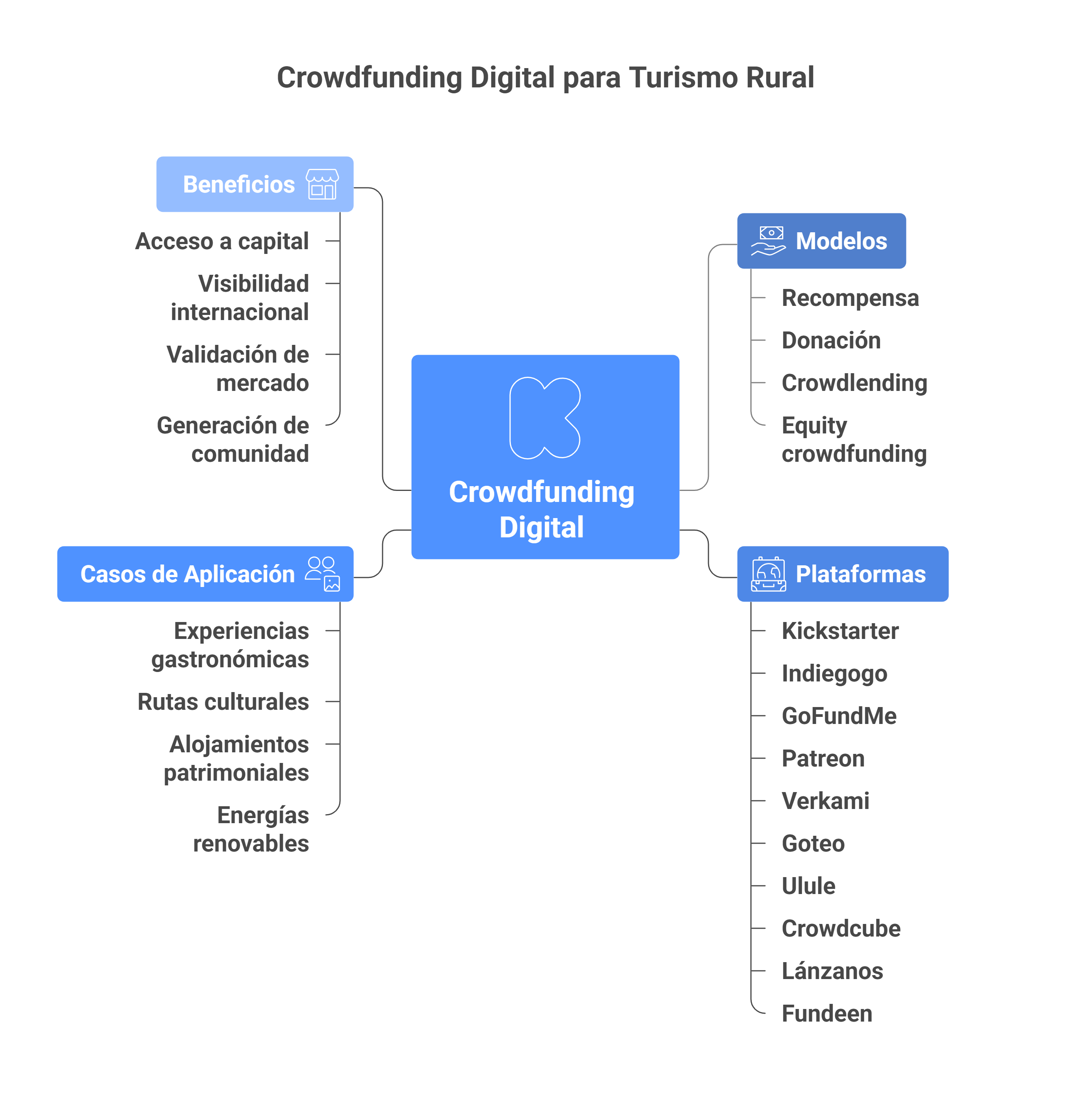Rural tourism is a key driver of economic development in Castilla y León, yet many high-potential projects face a common obstacle: lack of funding. In response, digital crowdfunding has become a powerful tool for turning ideas into reality, mobilizing community support through online platforms.
What is digital crowdfunding?
In a context where traditional financing can be limited, digital crowdfunding emerges as an accessible and participatory alternative. This model allows people from all over the world to financially support rural tourism projects through small contributions on online platforms, democratizing access to capital and encouraging community involvement from the outset. The most common models include:
- Reward-based: contributors receive something in return (a stay, a gastronomic experience, etc.).
- Donation-based: for community or cultural initiatives.
- Crowdlending: collective loans with repayment.
- Equity crowdfunding: investment in exchange for business ownership.
Key platforms for rural tourism
Choosing the right platform is crucial to the success of a crowdfunding campaign. Each one offers specific features that can be tailored to different types of rural tourism projects, from cultural initiatives to sustainable or large-scale proposals. Understanding their approaches and target audiences helps design more effective strategies aligned with the promoter’s goals. There are numerous platforms that can meet the needs of rural SMEs:
- Kickstarter → innovative and creative experiences, such as tourism apps or themed routes.
- Indiegogo → sustainable initiatives, such as ecotourism projects.
- GoFundMe → community campaigns, such as reviving a local festival.
- Patreon → ongoing content creation (tourism promotion videos, cultural storytelling).
- Verkami (Spain) → cultural or tourism projects with local identity.
- Goteo (Spain) → sustainable tourism and social impact in rural areas.
- Ulule (Europe) → creative and community-driven initiatives, ideal for tourism SMEs.
- Crowdcube (Europe) → investments in larger-scale projects, such as rural hotel renovations.
- Lánzanos (Spain) → generalist, with examples of tourism and cultural projects.
- Fundeen (Spain) → focused on renewable energy, useful for sustainable rural accommodations.

Use cases in rural areas
Digital crowdfunding is already bearing fruit in various rural regions, enabling the funding of everything from innovative gastronomic experiences to the restoration of heritage accommodations. These cases demonstrate how creativity, local identity, and a commitment to sustainability can attract support from both local and global communities:
- Kickstarter or Indiegogo → launching an innovative gastronomic experience.
- Verkami or Goteo → signage and digitalization of cultural routes.
- Ulule or Crowdcube → financing the restoration of heritage accommodations.
- Fundeen → installing solar panels in rural homes to promote sustainable tourism.
Benefits for rural tourism SMEs
Beyond financing, digital crowdfunding offers strategic advantages for rural tourism SMEs. It allows them to validate ideas in the market, gain international visibility from early stages, and build a community of engaged supporters. It’s a tool that drives not only economic development but also emotional connection with the territory:
- Access to alternative capital.
- International visibility from the early stages.
- Market validation.
- Community building and visitor loyalty.
Digital crowdfunding not only funds projects—it builds community, fosters innovation, and strengthens competitiveness in rural areas.